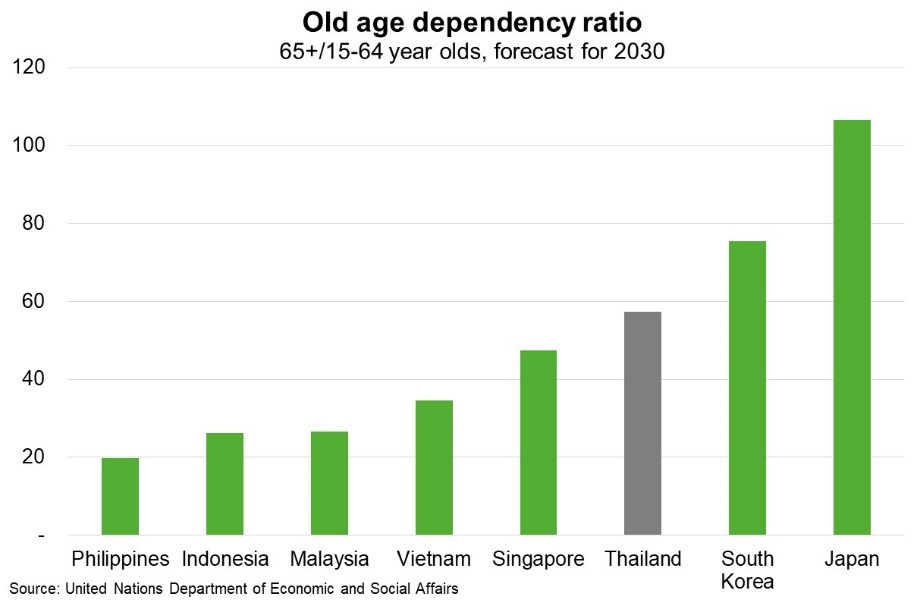© Export Finance Australia
The views expressed in World Risk Developments represent those of Export Finance Australia at the time of publication and are subject to change. They do not represent the views of the Australian Government. The information in this report is published for general information only and does not comprise advice or a recommendation of any kind. While Export Finance Australia endeavours to ensure this information is accurate and current at the time of publication, Export Finance Australia makes no representation or warranty as to its reliability, accuracy or completeness. To the maximum extent permitted by law, Export Finance Australia will not be liable to you or any other person for any loss or damage suffered or incurred by any person arising from any act, or failure to act, on the basis of any information or opinions contained in this report.
Thailand—Economic recovery despite political volatility risks
Economic growth in Southeast Asia’s second largest economy is forecast to accelerate moderately—from 1.9% in 2023 to 2.9% in 2024 and 3.1% in 2025—amid stronger consumption, tourist inflows and exports (54% of GDP). Foreign investment proposals also increased sharply in H1 2024, particularly in electronics and vehicle manufacturing, amid aggressive government incentives and low trade barriers. However, structural constraints—including high household debt and borrowing costs and inadequate social safety nets for a fast-aging population (Chart)—will continue to see economic growth and foreign investment lag regional peers.
Two rulings from Thailand’s Constitutional Court last month resulted in dissolution of the opposition party and removal of the Prime Minister. First, the Court dissolved the Move Forward Party (MF)—which won the most seats in the May 2023 general election but was blocked from power—and issued 11 party executives with 10-year bans from politics. The Court unanimously ruled that MF posed a threat to the constitutional monarchy following proposals to amend Thailand’s lese majeste laws. MF’s remaining 143 parliament members subsequently regrouped under a new banner, the People’s Party. Second, the Court removed Prime Minister Srettha Thavisin due to an ethics violation. Paetongtarn Shinawatra, the daughter of former Prime Minister Thaksin Shinawatra, was appointed as the new Prime Minister on 18 August.
Paetongtarn received the support of almost two-thirds of parliament, indicating the 11-party governing coalition remains intact. Paetongtarn’s new cabinet and announced policy agenda suggests a significant degree of policy continuity, which has reassured investors. For instance, a large fiscal stimulus package benefiting households and championed by Srettha has been confirmed. The scheme will boost near term economic prospects, despite concerns it will increase fiscal pressures and erode scope for productivity-boosting structural reforms.

